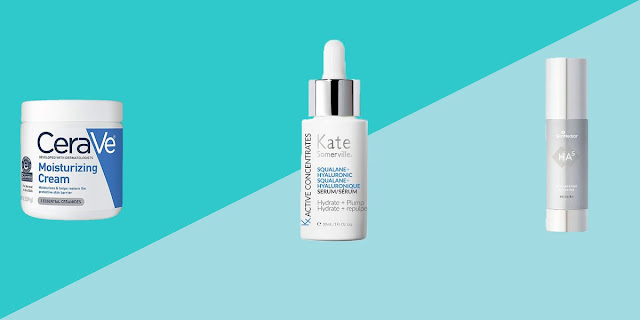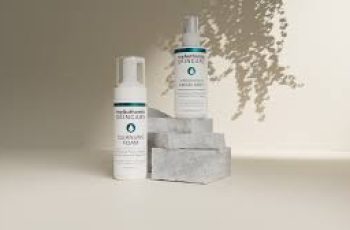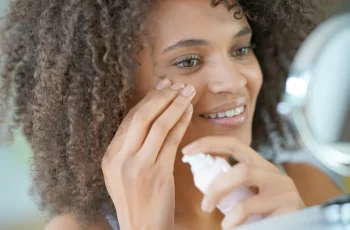
Which ingredients in skincare products should you avoid if you have rosacea?
Having rosacea is definitely not a walk in the park. Rosacea is a skin condition caused by a number of factors that causes redness, bumps, and lumps on the skin. While it has no impact on your health, it can have a big impact on your self-confidence.
We took the time to look at some of the ingredients in skincare products that are best to avoid if you have rosacea. So let’s take a deeper look.
Which ingredients should you avoid if you have rosacea?
There are some ingredients you should avoid if you have rosacea:
Alcohol
Perfume
Menthol
Witch hazel
Eucalyptus
These ingredients may affect your skin if you have rosacea. This may seem confusing because some of them are considered natural or come from natural sources. Here’s a closer look at why these ingredients are best avoided.
Alcohol
Using skincare products that contain alcohol may have some benefits for people with oily or blemish-prone skin, but this is not the case for people with rosacea or sensitive skin. The effects of alcohol include skin becoming tight, uncomfortable and very dry, with the outer layer of the skin damaged and unable to regenerate naturally. These effects can accelerate a variety of problems, making the skin appear dull and inflamed, and various signs of aging such as fine lines and wrinkles appear. Unfortunately, for many people, alcohol is not just a problem in skincare products, drinking alcohol, especially wine, can also cause rosacea flare-ups.
Fragrance
We often take a quick sniff at skincare products, even if the label says they are fragrance-free. If you want to use products with a pleasant smell, you won’t be offended, and fortunately, many natural ingredients used in products have great fragrances. It is synthetic fragrances that are added to the mix to give the product an overall smell or to hide bad smelling ingredients that can cause many problems for rosacea sufferers.
Determining whether a formula contains fragrance can be a tricky task, as there are many different names and types used throughout the beauty industry. The best thing to do is to choose a skincare product you want to try and do more detailed research from other rosacea sufferers on various websites or forums. You can also ask a dermatologist or GP for advice.
Menthol
You’ll often find menthol in products designed for acne-prone and oily skin types because its clean, slightly tingling feel is preferred. However, menthol is alcohol, and as we’ve already discussed, alcohol is a no-no for sensitive skin types with rosacea and can trigger rashes and facial redness.
Witch Hazel
Yes, witch hazel is a natural ingredient, and you might be wondering if it made it onto this list by accident. Although it’s highly praised for its astringent and antioxidant properties, it’s mixed with alcohol during the distillation process, making it very sensitive to sensitive and rosacea-prone skin. While using witch hazel can be effective in treating some short-term skin issues, it can cause a host of problems in the long run.
Eucalyptus
Eucalyptus is rich in antibacterial properties that can easily soothe and heal the skin. However, there’s one important factor to keep in mind: eucalyptus is a very potent fragrance oil that anyone with rosacea should avoid to prevent redness.
So there you have it, some common skin care ingredients that are best avoided if you suffer from rosacea. Although it may seem rather complicated to figure out if your products contain these reactive ingredients, we recommend that you take note of the products you use every day. Perhaps jot down the steps in your daily routine and if you notice a reaction, look through your notes to find out which products may have caused a breakout.
Which ingredients are good for rosacea?
Whether your rosacea is mild or severe, it is always a good idea to use skincare products that contain ingredients that soothe the skin and keep it from getting red.
Azelaic acid
Although azelaic acid is a lesser-known acid, it is a phenomenal ingredient that is very effective for calming and soothing redness, whether it is from pimples or breakouts such as rosacea. Using azelaic acid can cause a burning sensation, but it is known to rarely cause dry skin and itching, so it is a beneficial ingredient for people with sensitive skin and those prone to rosacea. If you are unsure or concerned, you should ask your GP for advice on the product before using it. Read our article on azelaic acid and its effects on the skin in the blog.
Cosmeceuticals
These products are available over the counter and contain some bioactive ingredients that can treat and control rosacea. Green tea and niacinamide are two of the most commonly used remedies for relieving the discomfort caused by rosacea. If you want to learn more, there is a post on the blog about the benefits of niacinamide for skin care.
What face wash should I use if I have rosacea?
The key to face washing for rosacea is to be gentle, from the pressure you use to the ingredients in your skincare. By following a balanced and correct routine, you will notice:
Your skin will stay comfortable for longer
Your overall skin health will improve
Your rosacea flare-ups will be less frequent
Here are some simple steps to maintain a proper skin care routine:
Wash your face twice a day
But remember to be gentle! Avoid products with the ingredients listed above and those that also contain foaming agents like SLS. Cleansers and face washes, applied with warm water and fingers, are the best way to thoroughly cleanse and nourish your skin.
Daily Moisturizer
Applying a face cream regularly will not only prevent your skin from drying out, but it will also ensure that your skin’s protective barrier remains fully functioning and can fight any free radicals or other skin-damaging molecules that clash with your face on a daily basis and cause signs of aging, acne, and lead to breakouts.
Use SPF Daily
Not using SPF will not prevent rosacea breakouts. Even if the weather looks a little cloudy, skin-damaging UV rays can penetrate and contact your skin. To prevent further damage, it’s best to apply a sunscreen of SPF 30 or higher every day.
Always Test Your Products
You’ll have a better idea of whether your skin will react to a product if you always test it before applying it all over your skin. You can do a patch test by applying a small amount to the inside of your arm and leaving it on for 24 hours. Once this time has passed and there are no signs of a reaction, you can use the product on your face.
Below is more information on what ingredients to avoid if you have rosacea, as well as advice on what to do if you currently have any rosacea. As mentioned above, if you have skin issues or are using new products in your daily routine, it’s best to consult a dermatologist who can help you determine your skin’s needs after examining your skin.


